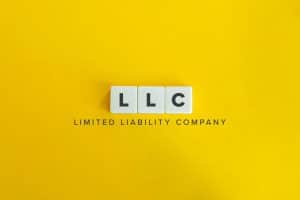News
The Pros And Cons Of A Limited Liability Company For Startups
When starting a business, one crucial step is to choose your entity type or the legal structure your company will take. One of the common business entities for startups is a limited liability company (LLC). LLC is a hybrid business entity for a corporation and a partnership. In other words, it combines the characteristics of both corporations and proprietorships.
For instance, LLC provides limited liability protection to its members, a characteristic that corporations also feature. At the same time, an LLC is similar to a partnership as it allows for flexibility in management.
Choosing a registered agent is one of the important steps when forming and running an LLC. An agent refers to an individual or company that can help ensure the company meets all legal requirements, such as filing annual reports with the government. The provider will be receiving official documents on behalf of the business and delivering them to the appropriate recipient too.
Suppose you’re wondering, ‘Can I be my own registered agent?’ The answer to that question is ‘yes.’ In many states, you can act as a registered agent of your LLC. The requirements? You only need to be above 18 years old and have a physical address in the state where you’re forming your LLC.
Is Forming An LLC A Good Move For Your Startup Company?
To help decide whether an LLC is the right business entity for your startup, you’ll want first to explore its benefits and drawbacks. Once you understand this, you’ll likely start and run a successful company.
Pros Of An LLC For A Startup
There are tons of benefits to registering your startup as an LLC. They include the following:
- Provides You With Personal Legal Protection
One benefit of forming an LLC for your startup is to take advantage of personal legal protection. Once formed, an LLC becomes a separate and distinct entity from its owner. Therefore, it takes care of its debts and other legal liabilities.
Choosing another business entity type puts your personal properties at a higher risk. For instance, there’s no legal distinction between a sole proprietorship business and the owners. Suppose you register your startup as a sole proprietorship. In such a case, your personal assets can be used to cover the business liabilities.
Setting up an LLC provides personal legal protection, meaning your personal assets won’t be in danger if the company fails to honor its debts.
- Offers Perpetual Existence
In many cases, LLCs have perpetual existence, which means that the company can continue to operate even when there’s a change in ownership or a member withdraws from it. Nonetheless, the company might not have a perpetual existence if members have explicitly expressed that in the articles of organization.
Keep in mind that some other business entities are closely related to members. For instance, as noted earlier, a sole proprietorship is an entity where the company and owner are considered the same. Therefore, the company ceases to exist when the owner dies or withdraws from the business. Likewise, the death of a member or withdrawal from a partnership requires the company to be dissolved. That isn’t the case with an LLC, as the withdrawal of one member doesn’t mean that the business must stop operating.
- Allows For Pass-Through Taxation
In many cases, an LLC is a pass-through tax entity, meaning the company won’t pay taxes and file taxes in its own name. Instead, the profits and losses pass through to members, who then pay and file taxes on their personal tax accounts. This pass-through taxation helps reduce a company’s tax burden, providing more cost savings in the long run. And it makes filing taxes a much easier affair.
The abovementioned are just some of the most notable advantages of LLCs for a startup.
Cos Of Forming An LLC For Your Startup
While there are many benefits to running an LLC, it also has some drawbacks. Here are the two major ones:
- You May Need To Hire An Expert To Help Form An LLC
Forming and running an LLC requires a lot of legal formalities, especially when compared to a sole proprietorship and partnership business. If you don’t possess the right expertise, you may be forced to hire a professional to do the work for you and cause extra costs.
- Limited Liability Protection May Sometimes Have Limits
As explained earlier, forming an LLC could be a good choice since it offers limited liability protection to members. Yet this limited liability protection isn’t absolute, meaning sometimes you can still be personally liable for the company’s debts.
Below are situations when you can lose personal protection in an LLC:
- If you guarantee business loans;
- If you engage in fraudulent activities;
- If you fail to maintain proper records;
- If you keep personal and business finances in the same bank account; and many more.
If you’re planning to use the LLC business model for your startup, make sure to account for the inherent risks that come with the decision.
Takeaway
One of the business entities to consider for your startup is LLC. Given the various pros and cons of an LLC company, you ought to weigh each side of the spectrum to help you determine if going for an LLC setup works best for your business needs. If you need help forming an LLC, reach out to a registered agent for guidance. And if you want to do the legwork yourself, you can even be your own organization’s agent.


























